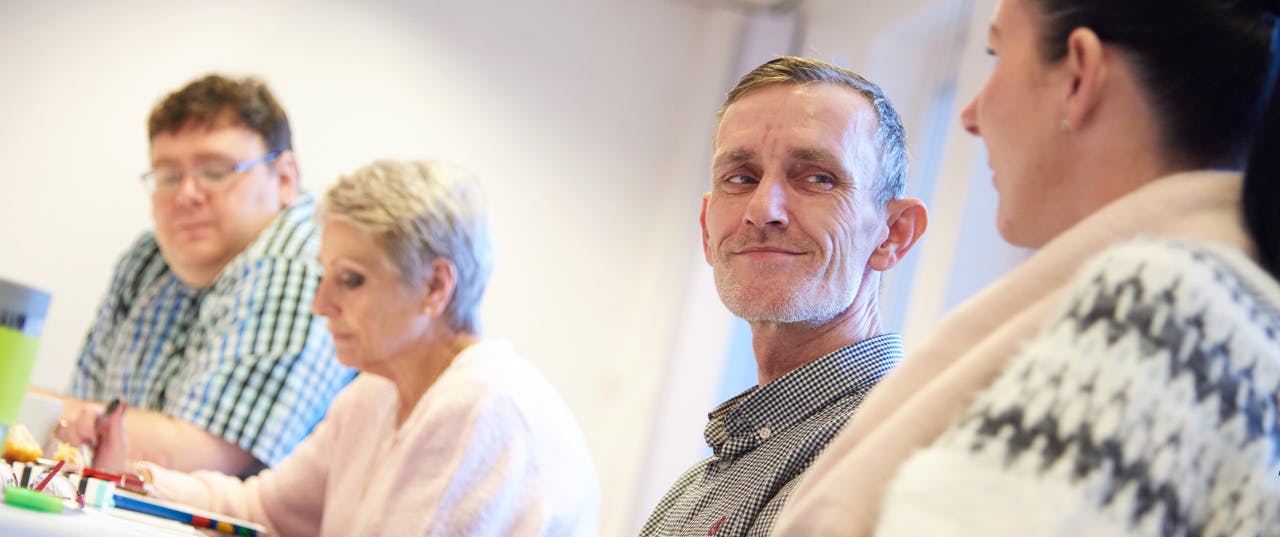
Social Prescribing
Lessons learned
What we’ve learned
Social Prescribing has the potential to benefit individuals, the VCS and the health system by making better use of resources and giving people greater control of their own wellbeing.
It is much more than signposting. It works with the patient as an individual, supporting and enabling them to overcome barriers to health and wellbeing.
Charities and community organisations play a vital role in social prescribing. VCS groups run many of the prescribed activities and often provide the link worker or “prescriber” function. Social prescribing offers opportunities for the VCS to reach new people and promote a holistic way of working. But it also presents a challenge for funding and resourcing by creating increased demand for services.
The link worker role is an essential part of social prescribing. But it is also a challenging role. It requires a range of skills, experience and local knowledge. Good link worker practice tailors support to the needs of the individual by finding what best motivates and empowers them.
For social prescribing to flourish we must support both the link worker role and the delivery of end services. Link workers need activities to prescribe to, referrers and individuals need to be confident that quality activities are available, and VCS organisations must be able to meet demand.
We know some lack confidence in social prescribing as a viable treatment option. There is a need for better evidence to show the strength and impact of the approach. We can support social prescribing to realise its potential and have a lasting impact by making social interventions more visible, finding ways to show their impact and assuring the quality of the end service.
How to implement social prescribing
Social prescribing practice
Establish good relationships with GPs and other referrers:
- Be proactive, get out and about, and take time to build relationships
- Be explicit with your partners about what your service can and can’t offer
- Make the referral process as simple as possible. Through co-locating services with GP practices, cutting out bureaucracy and linking with healthcare IT systems
- Share your successes and show the benefits to all parties
Link workers are the heart of social prescribing- so we need to look after them
Link workers need up to date knowledge of what’s on offer from the local VCS, how it functions and its connections, as well as understanding the needs of the community. They must be effective at a one to one level and able to act strategically with partners.
Look after link workers- provide:
- pay that reflects the skills and experience needed
- opportunities to reflect on their work
- peer support or formal supervision
We have a really supportive team, so if there is anything where we go away from a visit and think ‘oh god, that was really difficult’, we can go and speak to them…Link worker from Brightlife project
People are more than just patients
How the link worker works with people can be as important as the activities they refer them to. Move away from traditional client/worker relationship to a more equal partnership to co-produce the social prescription.
Take a person-centred approach by:
- Making people feel welcome and safe
- Build rapport and connections – listen, take an interest in the person and their situation
- Working together to co-create options that support independence, not dependence
- Identifying barriers and work together to overcome them
- Finding the activity or service that best suits the person.
[A link worker]… helped me to realise that if I take things in ‘baby steps’…that I can actually do more for myself than I had originally realised. I now feel more motivated and capable than before…Bristol Ageing Better beneficiary
Making Social prescribing work
How can we make social prescribing work for both the healthcare and VCS systems?
Pay for the whole service, not just parts of the process. It’s essential that the services and activities recommended to patients are also adequately and sustainably funded.
Show what’s possible with social prescribing, and be intentional about adding to the evidence base. By showing how social prescribing prevents ill health and promotes wellbeing we can gain credibility and buy-in.
Our grantholders are helping to articulate the benefits through:
- Working with a range of VCS organisations to develop a wide outcomes framework – the University of Westminster and the Social Prescribing Network
- Measuring and tracking individual outcomes - Ways to Wellness and Bogside and Brandywell Health Forum.
- Developing quality assurance for social prescribing setting out standards for link workers and groups providing activities/services – The Conservation Volunteers.
Building trust and understanding between the VCS and CCGs and other strategic partners is essential. Social prescribing works best when organisations are willing to work with each other towards shared goals and to share learning and when funding does not create perverse incentives and competition.
Ways to Wellness received over 4,500 referrals and supported 3,400 patients in three years. Almost 2,000 patients have been assessed, with an average improvement in wellbeing of 3.3 points against a target of 1.5 on the Wellbeing Star- GO Lab case study